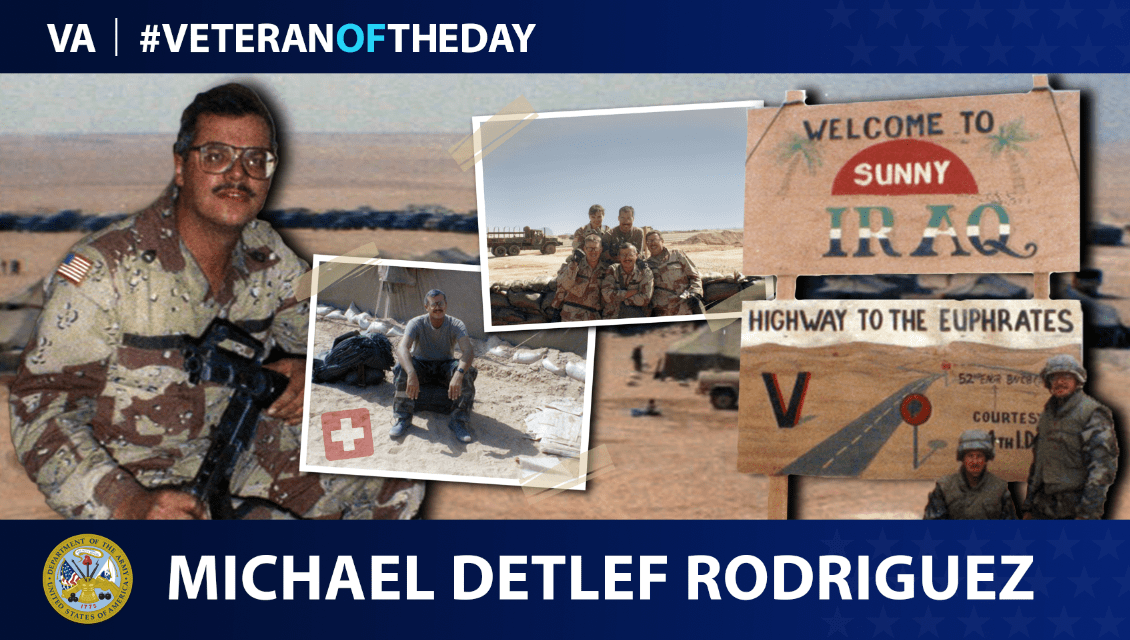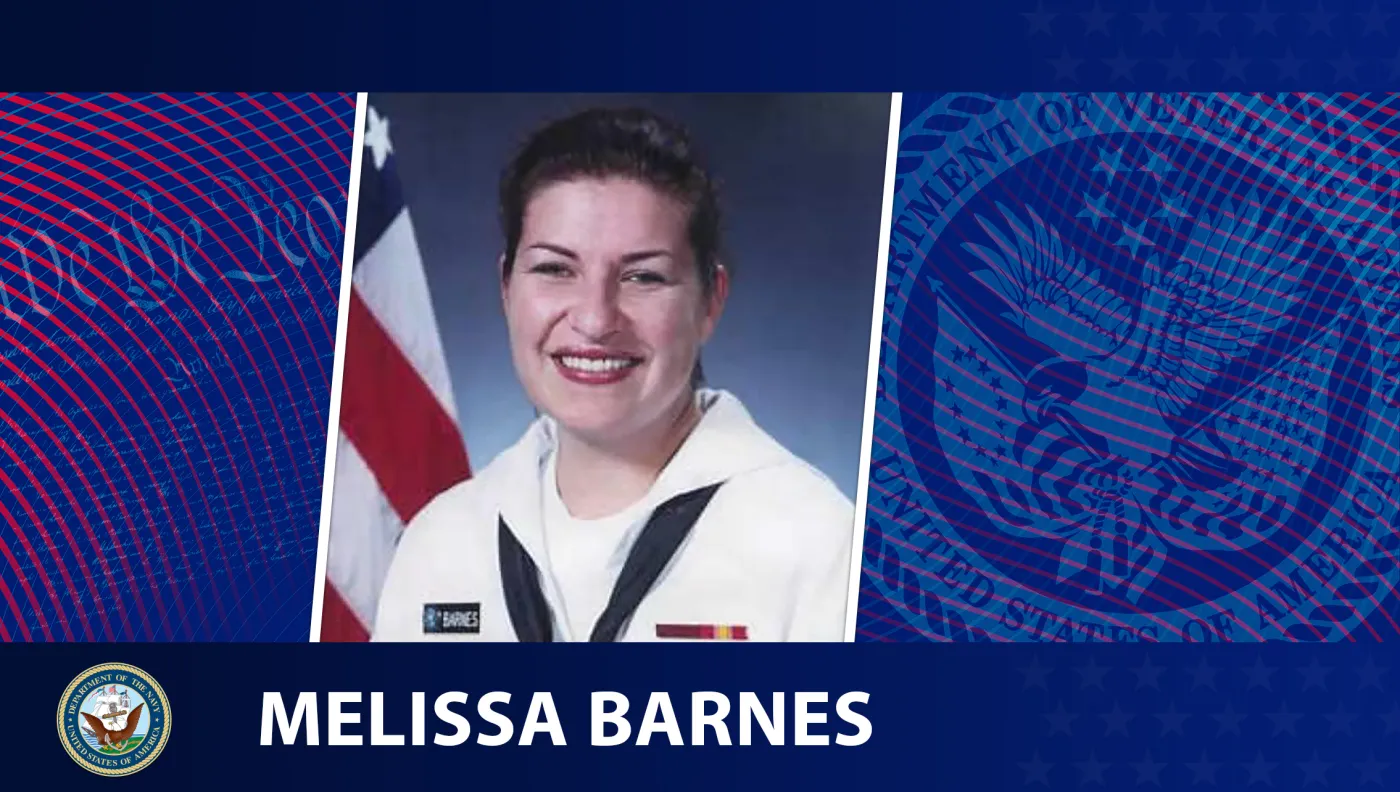
Today’s #VeteranOfTheDay is Army Veteran Michael Rodriguez, who served as a medic with the 5th Mobile Army Surgical Hospital during the Gulf War.
Born in 1955 in Berlin, Germany, Michael Rodriguez moved to Monterrey, California, when his father, an Army first sergeant, received orders to Fort Ord. Shortly after graduating high school, Rodriguez joined the Army in 1975. His father greatly influenced his choice of military branch.
Rodriguez went through basic training at Fort Ord. He then continued training at Fort Sam Houston in San Antonio, Texas, to become a combat medic as well as complete his Emergency Medical Treatment training. He worked at an air assault school as an attending medic for a year, and then went to his first duty station at Fort Campbell, Kentucky, where he was a member of the 326th Medical Battalion. Rodriguez married his wife in 1977, so he didn’t live in the barracks for long, but he still experienced the power of camaraderie throughout his time in the Army.
Shortly after his marriage, he moved to the Berlin Medical Department Activity in West Germany from 1977 to 1980. There, he worked at the ward, emergency room and pediatric clinic. After 1980, he went to Fort Bragg, North Carolina, until 1992. There, Rodriguez spent many years with an engineer battalion and then moved to the 5th Mobile Army Surgical Hospital.
In 1990, Rodriguez deployed for Operation Desert Storm. His journey started in Dhahran, Saudi Arabia, where he helped set up the 5th Mobile Army Surgical Hospital. They then moved to King Khalid Military City where they also established a military hospital. From there, they deployed to Iraq.
In Iraq, Rodriguez worked at the 5th Mobile Army Surgical Hospital headquarters. The forward surgical team brought patients needing treatment back to headquarters, and most patients survived. Rodriguez remembers it being hot and sandy, but he always had food and warm showers.
Rodriguez looked forward to reading letters, and his family would mail him care packages that he shared with everyone. During his free time, he liked to read and listen to the cassettes his brother sent him.
Rodriguez went home soon after the war ended in April. After Iraq, he went to back to Fort Sam Houston. There, he was an instructor for the Noncommissioned Officer Academy and worked for the Army Medical Department board. In 1996 he went to Fort Knox, Kentucky, to the Army Training Support Brigade where he worked with a readiness group, evaluating National Guard and Reserve soldiers.
In 1999, Rodriguez retired as a master sergeant after 24 years of service.
We honor his service.
Nominate a Veteran for #VeteranOfTheDay
Do you want to light up the face of a special Veteran? Have you been wondering how to tell your Veteran they are special to you? VA’s #VeteranOfTheDay social media feature is an opportunity to highlight your Veteran and his/her service.
It’s easy to nominate a Veteran. Visit our blog post about nominating to learn how to create the best submission.
Veterans History Project
This #VeteranOfTheDay profile was created with interviews submitted to the Veterans History Project. The project collects, preserves, and makes accessible the personal accounts of American war Veterans so that future generations may hear directly from Veterans and better understand the realities of war. Find out more at http://www.loc.gov/vets/.
Contributors
Writer: Kimberly Kassis
Editor:
Fact checker: Kinsley Ballas
Graphic artist: Erin Gallagher
Topics in this story
More Stories
This week’s Honoring Veterans Spotlight honors the service of Marine Corps Veteran Opha May Johnson, who served during World War I.
This week’s Honoring Veterans Spotlight honors the service of Navy Veteran Melissa Barnes, who died while serving on Sept. 11, 2001.
This week’s Honoring Veterans Spotlight honors the service of Army Veteran Pamela Dorothy Donovan, who served as a nurse in Vietnam.






We honor the service of Michael Rodriguez.